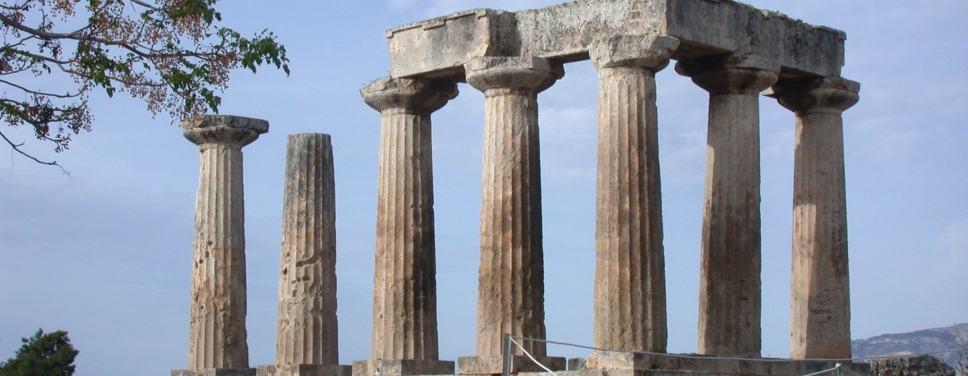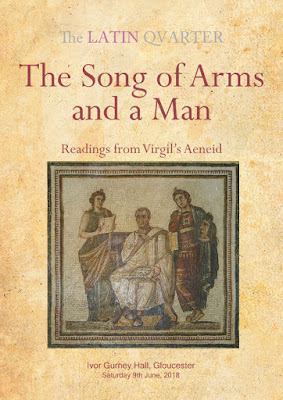by Philip Hooker
Once again, we have studied the Bookseller’s Buyers Guide and picked
out the books on classical themes which publishers believe will be of interest
to the general reader.
Among the highlights is Circe, by Madeline Miller, whose Song
of Achilles won the Orange Prize in 2012 and is one of their top ten in literary
fiction. In paperback, there will be The Children of Jocasta by Natalie Haynes, House of Names by Colm Tóibín
and The Penelopiad by Margaret Atwood. For
the Immortal, in hardback, is the ‘triumphant finale’ of Emily Hauser’s Golden Apple trilogy.
More popular works include the
latest from Lindsey Davis, Robert Fabbri, Adrian Goldsworthy, Conn
Iggulden, Harry Sidebottom, Ben Kane, Ian Ross, Anthony Riches and Simon Scarrow, who all seem to sell
very well. Lesser known, but more
intriguing, is Alessandro Barbero’s The Athenian Women: A Novel, set in
411BC, the time of Lysistrata, with oligarchs oppressing the democrats (which
is claimed to be very contemporary).
Adrian
Goldsworthy
is also highlighted for Hadrian’s Wall:
Rome and the Limits of Empire, in the highly illustrated Landmark
series. Mary Beard has one of the two books based on the new BBC
Civilisations series, describing ancient representations of the human body and
the interface between art and religion.
We must also include Edith Hall,
whose Aristotle’s Way: How Ancient Wisdom
Can Change Your Life is described as a self-help book. Troy is also topical, which makes Naoise Mac Sweeney’s Troy: Myth, City, Icon particularly
timely.
Non-fiction paperbacks include several
acclaimed works from 2017: Paul Cartledge’s
Democracy, Guy de la Bédoyère on
the Praetorian Guard, Bijan Omrani’s
Caesar’s Footprints: Journeys to Roman
Gaul, and Catharine Nixey’s polemic on the Christian destruction of the Classical
world.
There are a good number of new
scholarly histories for the general reader:
Josiah Osgood’s Rome and the Making of a World State, 150 BCE
- 20 CE, Robin Waterfield’s Creators, Conquerors and Citizens: A History
of Ancient Greece, Jeremy McInerney’s
Greece in the Ancient World
(illustrated), Angelos Chaniotis’ Age of Conquests: The Greek World from
Alexander to Hadrian (336 BC – AD 138), Philip Matyszak’s The Greeks:
Lost Civilisations (all about Greeks
abroad from India to Spain), Peter Rhodes’ Periclean Athens, and Richard
Billows’ Before and After Alexander:
The Legend and Legacy of Alexander the Great.
More specialist works come from Walter Scheidel, who has edited The Science of Roman History: Biology,
Climate and the Future of the Past, on how the latest scientific advances
have changed our understanding, Robin
Osborne with The Transformation of
Athens: Painted Pottery and the Creation of Classical Greece, based on the
Princeton Martin Classical Lectures, and Judith
Swaddling with An Etruscan Affair: The
Impact of early Etruscan discoveries on European culture.
Then there is Iain Ferris with Cave Canem:
Animals in Roman Civilisation, David
Weston Marshall with Ancient Skies: Constellation
Mythology of the Greeks, Jeremy
Mynott with Birds in the Ancient
World: Winged Words, Carolyn
Roncaglia with Northern Italy in the
Roman World: From the Bronze Age to Late Antiquity, Simon Elliott with Septimius
Severus in Scotland: The Northern Campaigns of the First Hammer of the Scots,
and Roger White and Mike Hodder’s Clash of Cultures?: The Romano-British
Period in the West Midlands.
Among reception works we note Ian Jenkins and colleagues’ Rodin and the Art of Ancient Greece, the
catalogue of the British Museum exhibition running from 26 April to 29 July,
and Edgar Vincent’s A. E. Housman: Hero of the Hidden Life,
about his poetry and academic life, aided by 81 newly discovered letters.
New texts and translations include
two translations from Pamela Mensch: Plutarch’s
The Age of Caesar: Five Roman Lives, and Diogenes Laertius’ Lives of
the Eminent Philosophers. The
latest Oxford Classical Text is Antiphon
and Andocides: Speeches (Antiphontis
et Andocidis Orationes) edited by Mervin Dilts and David Murphy. The latest Loeb Classics include Ennius’ Fragments, edited by Sander Goldberg and Gesine Manuwald, Galen’s Hygiene edited by Ian Johnston, and Volume X of their new Livy.
New Oxford World Classics include two from Aristotle: The Art of
Rhetoric (translated by Robin Waterfield) and On the Soul and Other Psychological works (translated by Fred D. Miller,
Jr.), as well as Anthony Verity’s version of Homer’s Odyssey, which
must compete with those of Emily Wilson and Peter Green. Virgil’s
Aeneid also appears in a new version
from poet David Ferry. Aeschylus’ Libation Bearers, edited and translated by Andrew Lyon Brown, is
the latest in the Aris & Phillips Classical Texts series (now part of
Liverpool University Press).
For those with short attention
spans, Matthew Nicholls has edited 30-Second Ancient Greece: The 50 Most
Important Achievements of a Timeless Civilization, each Explained in Half a Minute
(300 words and one image). Cath Senker has a juvenile version: Ancient Greece in 30 Seconds: 30 Fascinating Topics for Kid Classicists
Explained in Half a Minute.
Similarly, there is Charles Phillips' The Ancient World in Minutes.
Among children’s books we note,
for ages 7-9, Museum Mystery Squad and
the case of the Roman Riddle by Mike
Nicholson (illustrated by Mike Phillips) and a new Asterix and the Chariot Race by Jean-Yves Ferri (illustrated by Didier Conrad and René Goscinny). For ages 9-12, we note the latest from Rick Riordan: The Dark Prophecy and The
Burning Maze in the Trials of Apollo
series, the latest from Caroline
Lawrence: Return to Rome in the Roman Quests series, and a new time-travel
from Ben Hubbard: Roman Britain and Londinium.
Philip
Hooker is the Hon. Treasurer of the Classical Association, and writes regularly
for the CA Blog on Classics in the Media.













